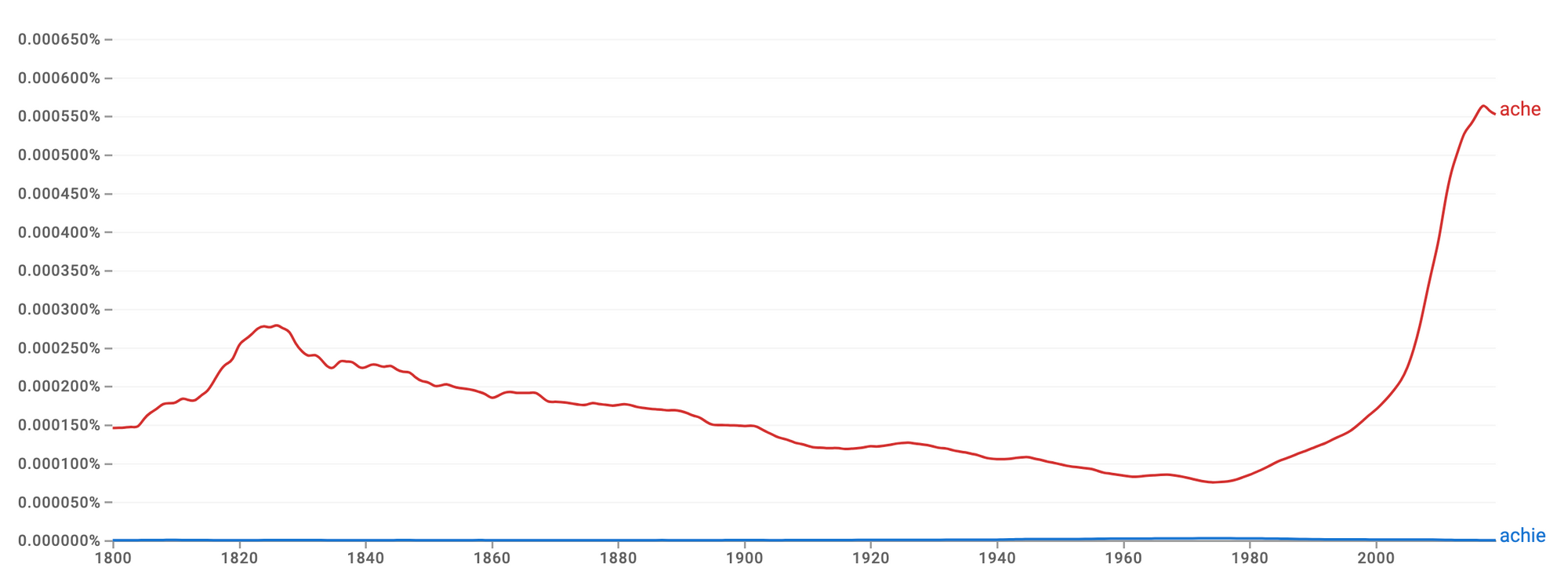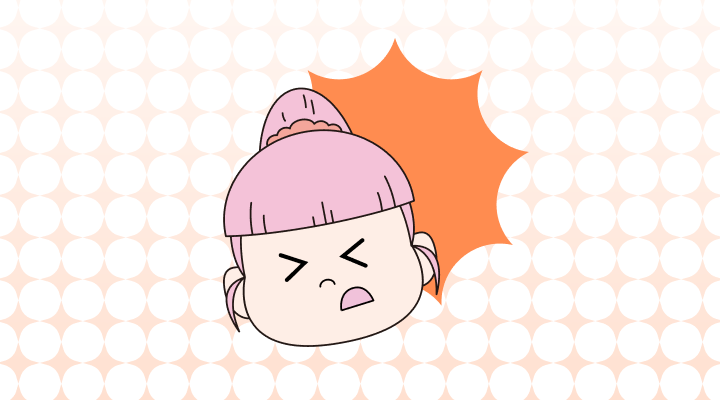- "Achie" is an incorrect spelling of the word "ache."
- Ache is a noun meaning a continuous, dull pain or discomfort in a part of the body.
❌ After the strenuous workout, she felt a persistent achie in her muscles.
✅ After the strenuous workout, she felt a persistent ache in her muscles.
Ache in this context refers to a continuous and dull pain or discomfort experienced in her muscles after working out.
What does "ache" mean?
Within the realm of human perception, "ache" denotes a subjective and unpleasant sensory experience characterized by a persistent, dull, or throbbing pain. It typically originates from tissues such as muscles, bones, or internal organs, and is distinct from sharp or sudden pain associated with acute injuries.
Key Characteristics:
- Subjectivity: Aches are inherently subjective, varying in intensity and quality depending on the individual's pain tolerance and the underlying cause. Descriptions may range from dull throbbing to a constant, burning sensation.
- Persistence: Unlike sharp pains, aches typically exhibit sustained or recurring character. They may persist for extended periods, often worsening with activity or specific triggers.
- Emotional Dimensions: Beyond physical discomfort, aches can also have psychological and emotional ramifications. Chronic or persistent aches can lead to fatigue, anxiety, and decreased quality of life.

The use of "achie" and "ache" over time
The Ngram graph below shows how often "achie" and "ache" have been used from the 1800s to the 2000s. "Ache" has seen a steady decline until a steep increase in the 2000s, while its misspelling "achie" has seen nearly zero use.

How to pronounce "ache"
In both British and American English, "ache" is pronounced like "ayk".
This is just the standard pronunciation, and there may be slight variations depending on regional accents and individual speech patterns.
Why would we misspell "ache" as "achie"?
- Typo: Individuals may accidentally add an "i" while writing or typing "ache", resulting in the misspelling "achie".
- Visual similarity: The word "achie" could be mistakenly typed due to its visual resemblance to "ache," especially when someone is not paying close attention.
Other common misspellings of "ache"
- ake
- aech
- aiche
- eich
- acke
Example sentences of the misspelling of "ache" as "achie"
- While "achie" may look similar to "ache," it is, in fact, an incorrect spelling often used by those unfamiliar with the proper term.
- Be cautious not to confuse "achie" with the correct word "ache"; the former is a misspelling that lacks the intended meaning.
- Writers and editors should be diligent in avoiding the use of "achie" as it is an erroneous spelling for the physical or emotional discomfort denoted by "ache."
- "Achie" is a common typo or mistake made by individuals who overlook the correct spelling, leading to a linguistic misstep.
- In academic and professional settings, it is crucial to demonstrate precision in language use, steering clear of the misspelling "achie" when referring to a continuous pain or discomfort.
Example sentences of "ache"
- The persistent ache in his joints made it challenging for him to move comfortably.
- She endured an ache in her head after staring at the computer screen for hours.
- The ache in her heart lingered long after the breakup.
- A sudden ache in his stomach prompted him to seek medical attention.
- The marathon left her with an all-over body ache that lasted for days.
- Emotional wounds can sometimes cause a deeper ache than physical pain.
- The dentist alleviated the toothache, but a dull ache persisted.
- Ignoring the persistent ache in his back only made the problem worse.
- A warm bath helped soothe the ache in her tired muscles.
- The ache in his throat signaled the onset of a cold.
🖊️ Releave vs. Relieve vs. Releaving vs. Relieving: Which is Correct?
🖊️ Shreak or Shriek: Which is Correct?
Synonyms for "ache"
- Pain
- Soreness
- Discomfort
- Throb
- Sting

Want to sound like a native speaker?
Engram’s AI-powered grammar checker makes your English sound like a native speaker’s, suggesting natural English expressions on top of fixing grammar, spelling, punctuation, word order, and vocabulary.

References:














